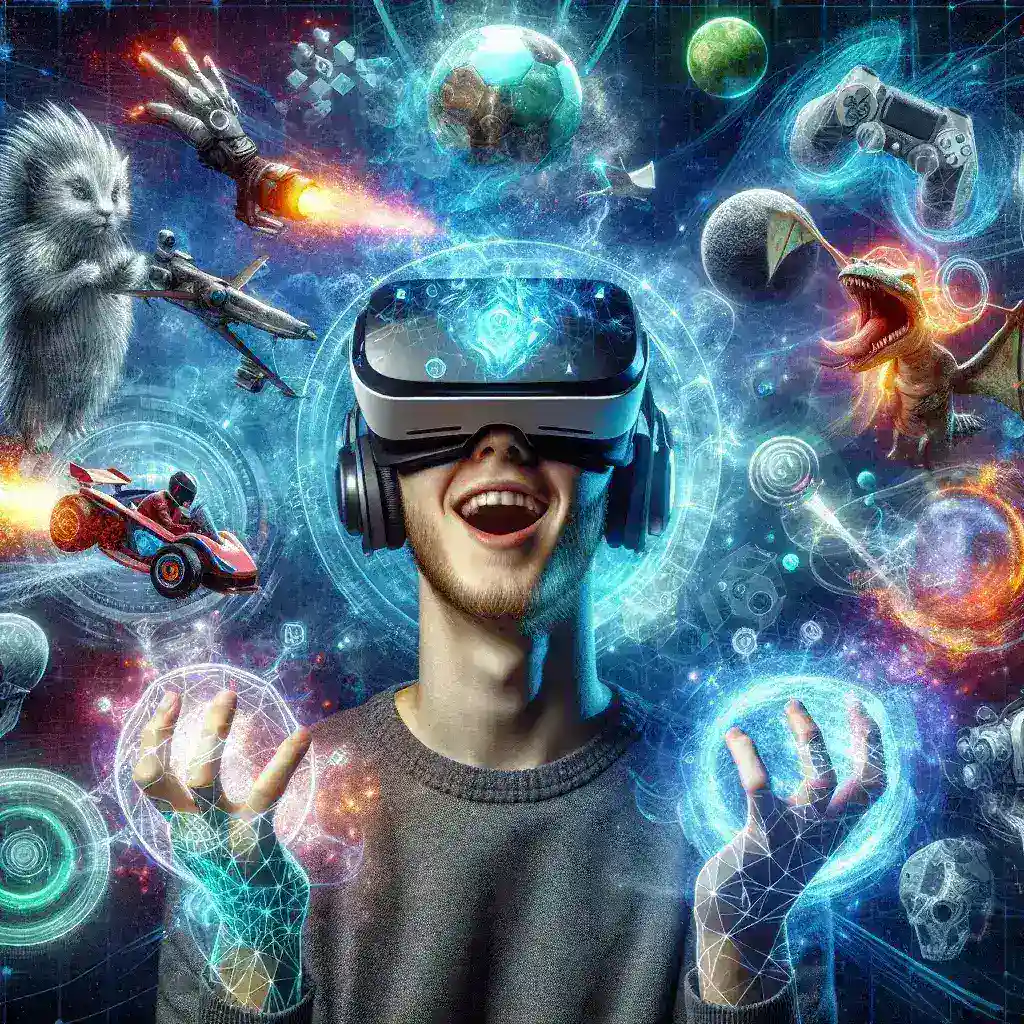Introduction to Virtual Reality
Virtual Reality (VR) technology is transforming the way we play games and experience digital environments. By providing immersive and interactive environments, VR has the potential to revolutionize various sectors, with gaming being at the forefront.
The Evolution of Gaming Through VR
Gaming has come a long way from simple 2D graphics to highly detailed, realistic 3D worlds. With VR, players are no longer just observers; they become active participants in the game universe. This shift has opened up new avenues for storytelling, gameplay mechanics, and overall user engagement.
Enhanced Gameplay
VR’s ability to create a fully immersive environment has led to the development of games that offer more than just traditional gameplay. Gamers can now physically move, interact with objects, and even communicate in real-time with other players in the virtual world. This level of interactivity enhances the gaming experience and makes it more engaging.
Realistic Graphics
One of the significant advantages of VR gaming is the ability to render highly realistic graphics. High-definition visuals combined with advanced motion tracking create an environment that closely mimics real life, adding depth and realism to the virtual experience.
Expanding Beyond Gaming
While VR is predominantly known for its impact on gaming, its applications extend far beyond that. Industries such as education, healthcare, real estate, and tourism are leveraging VR to offer enhanced experiences.
Educational Experiences
In education, VR provides immersive learning environments where students can explore historical sites, perform virtual lab experiments, and gain a deeper understanding of complex subjects through experiential learning.
Healthcare Applications
In healthcare, VR is used for surgical simulations, patient therapy, and training healthcare professionals. This technology allows for a safe and controlled environment to practice procedures and therapies before applying them in real life.
Real Estate and Tourism
The real estate industry uses VR to offer virtual tours of properties, allowing potential buyers to explore homes and commercial spaces from anywhere in the world. Similarly, the tourism industry provides virtual tours of destinations, enabling prospective travelers to experience sites before booking their trips.
The Future of VR
As technology advances, the future of VR looks promising. Improvements in hardware, such as lighter and more comfortable headsets, along with advancements in software, will lead to even more immersive and accessible VR experiences. The potential for VR is vast, and its applications will continue to expand across various sectors, providing unparalleled immersive experiences.
Conclusion
Virtual Reality is redefining what is possible in gaming and beyond. Its ability to create immersive environments offers new opportunities for engagement, learning, and interaction. As the technology continues to develop, we can expect even more innovative uses of VR in the future. Embrace the virtual revolution and get ready for a world of endless possibilities.

